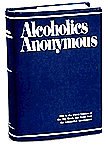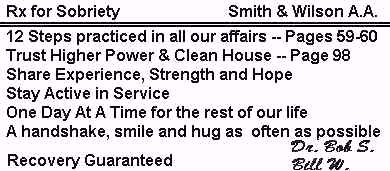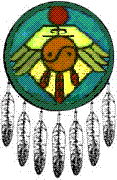

 Click The Images To Go To Page Indicated In The Flag Grapevine, March, 1948 "With respect to its own affairs, each A.A. group should be responsible to no other authority than its own conscience. But when its plans concern the welfare of neighboring groups also, those groups ought to be consulted. And no group, regional committee, or individual should ever take any action that might greatly affect A.A. as a whole without conferring with the trustees of The Alcoholic Foundation. On such issues our common welfare is paramount." This Tradition, Number 4, is a specific application of general principles already outlined in Traditions 1 and 2. Tradition 1 states, "Each member of Alcoholics Anonymous is but a small part of a great whole. A.A. must continue to live or most of us will surely die. Hence our common welfare comes first. But individual welfare follows close afterward." Tradition 2 states, "For our group purpose there is but one ultimate authority--a loving God as He may express Himself in our group conscience." With these concepts in mind, let us look more closely at Tradition 4. The first sentence of Tradition 4 guarantees each A.A. group local autonomy. With respect to its own affairs, the group may make any decisions, adopt any attitudes that it likes. No over-all or intergroup authority should challenge this primary privilege. We feel this ought to be so, even though the group might sometimes act with complete indifference to our tradition. For example, an A.A. group could, if it wished, hire a paid preacher and support him out of the proceeds of a group night club. Though such an absurd procedure would be miles outside our tradition, the group's "right to be wrong" would be held inviolate. We are sure that each group can be granted, and safely granted, these most extreme privileges. We know that our familiar process of trial and error would summarily eliminate both the preacher and the night club. Those severe growing pains which invariably follow any radical departure from A.A. tradition can be absolutely relied upon to bring an erring group back into line. An A.A. group need not be coerced by any human government over and above its own members. Their own experience, plus A.A. opinion in surrounding groups, plus God's prompting in their group conscience would be sufficient. Much travail has already taught us this. Hence we may confidently say to each group, "You should be responsible to no other authority than your own conscience." Yet please note one important qualification. It will be seen that such extreme liberty of thought and action applies only to the group's own affairs. Rightly enough, this Tradition goes on to say, "But when its plans concern the welfare of neighboring groups also, these groups ought to be consulted." Obviously, if any individual, group or regional committee could take an action which might seriously affect the welfare of Alcoholics Anonymous as a whole, or seriously disturb surrounding groups, that would not be liberty at all. It would be sheer license; it would be anarchy, not democracy. Therefore, we A.A.s have universally adopted the principle of consultation. This means that if a single A.A. group wishes to take any action which might affect surrounding groups, it consults them. Or, if there be one, it confers with the intergroup committee for the area. Likewise, if a group or regional committee wishes to take any action that might affect A.A. as a whole, it consults the trustees of The Alcoholic Foundation, who are, in effect, our over-all General Service Committee. For instance, no group or intergroup could feel free to initiate, without consultation, any publicity that might affect A.A. as a whole. Nor could it assume to represent the whole of Alcoholics Anonymous by printing and distributing anything purporting to be A.A. standard literature. This same principle would naturally apply to all similar situations. Though there is no formal compulsion to do so, all undertakings of this general character are customarily checked with our A.A. General Headquarters. This idea is clearly summarized in the last sentence of Tradition 4, which observes, "On such issues our common welfare is paramount." Bill W. The A.A. Grapevine, March, 1948 Index of AA History Pages on Barefoot's Domain As in so many things, especially with we alcoholics, our History is our Greatest Asset!.. We each arrived at the doors of AA with an intensive and lengthy "History of Things That Do Not Work" .. Today, In AA and In Recovery, Our History has added an intensive and lengthy "History of Things That DO Work!!" and We will not regret the past nor wish to shut the door on it!!
Live The Endless Love Of A.A.
On the Web July, 2006 in the Spirit of Cooperation Three mighty important things, Pardn'r, LOVE And PEACE and SOBRIETY |

